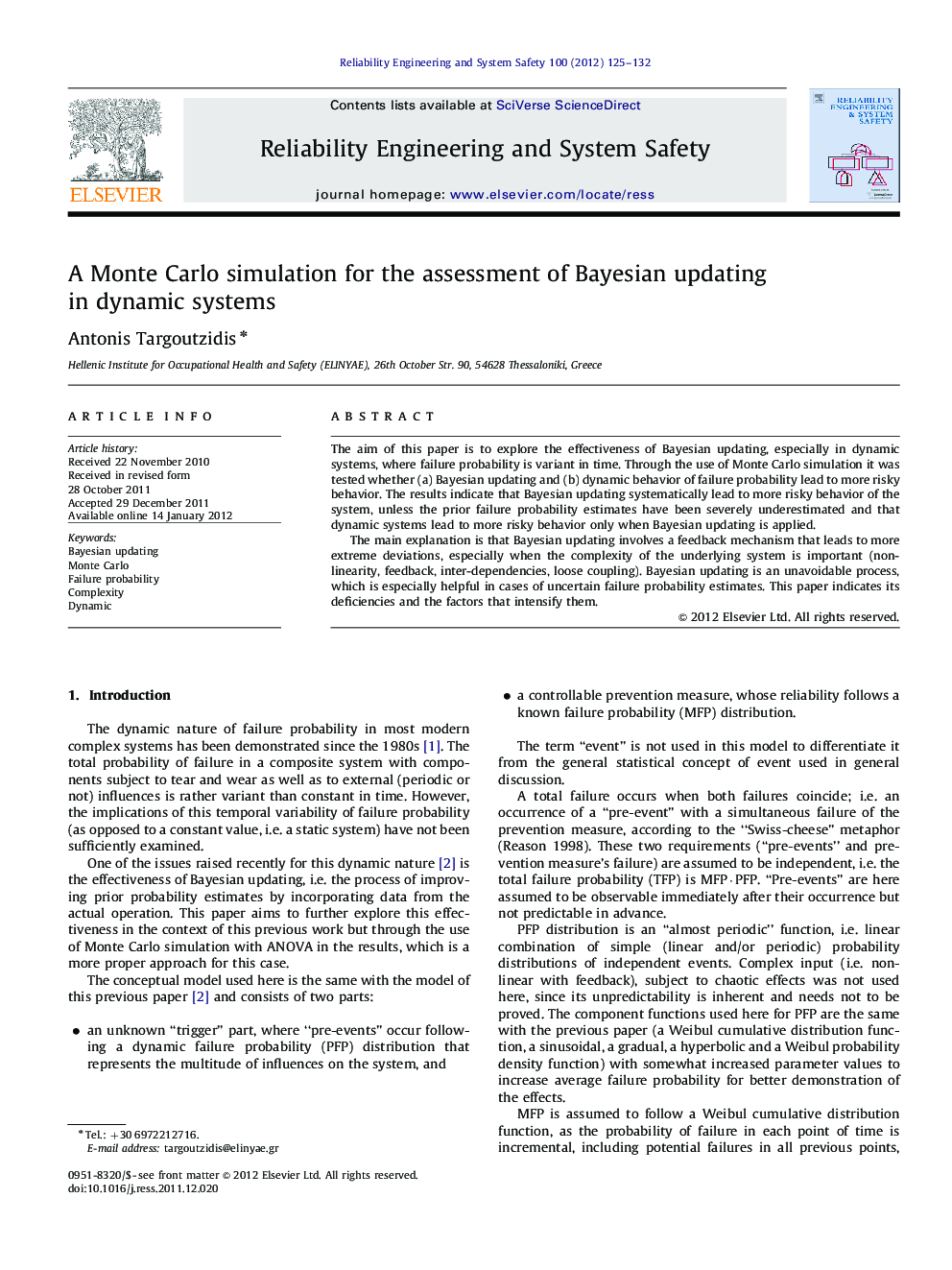| Article ID | Journal | Published Year | Pages | File Type |
|---|---|---|---|---|
| 807991 | Reliability Engineering & System Safety | 2012 | 8 Pages |
The aim of this paper is to explore the effectiveness of Bayesian updating, especially in dynamic systems, where failure probability is variant in time. Through the use of Monte Carlo simulation it was tested whether (a) Bayesian updating and (b) dynamic behavior of failure probability lead to more risky behavior. The results indicate that Bayesian updating systematically lead to more risky behavior of the system, unless the prior failure probability estimates have been severely underestimated and that dynamic systems lead to more risky behavior only when Bayesian updating is applied.The main explanation is that Bayesian updating involves a feedback mechanism that leads to more extreme deviations, especially when the complexity of the underlying system is important (non-linearity, feedback, inter-dependencies, loose coupling). Bayesian updating is an unavoidable process, which is especially helpful in cases of uncertain failure probability estimates. This paper indicates its deficiencies and the factors that intensify them.
